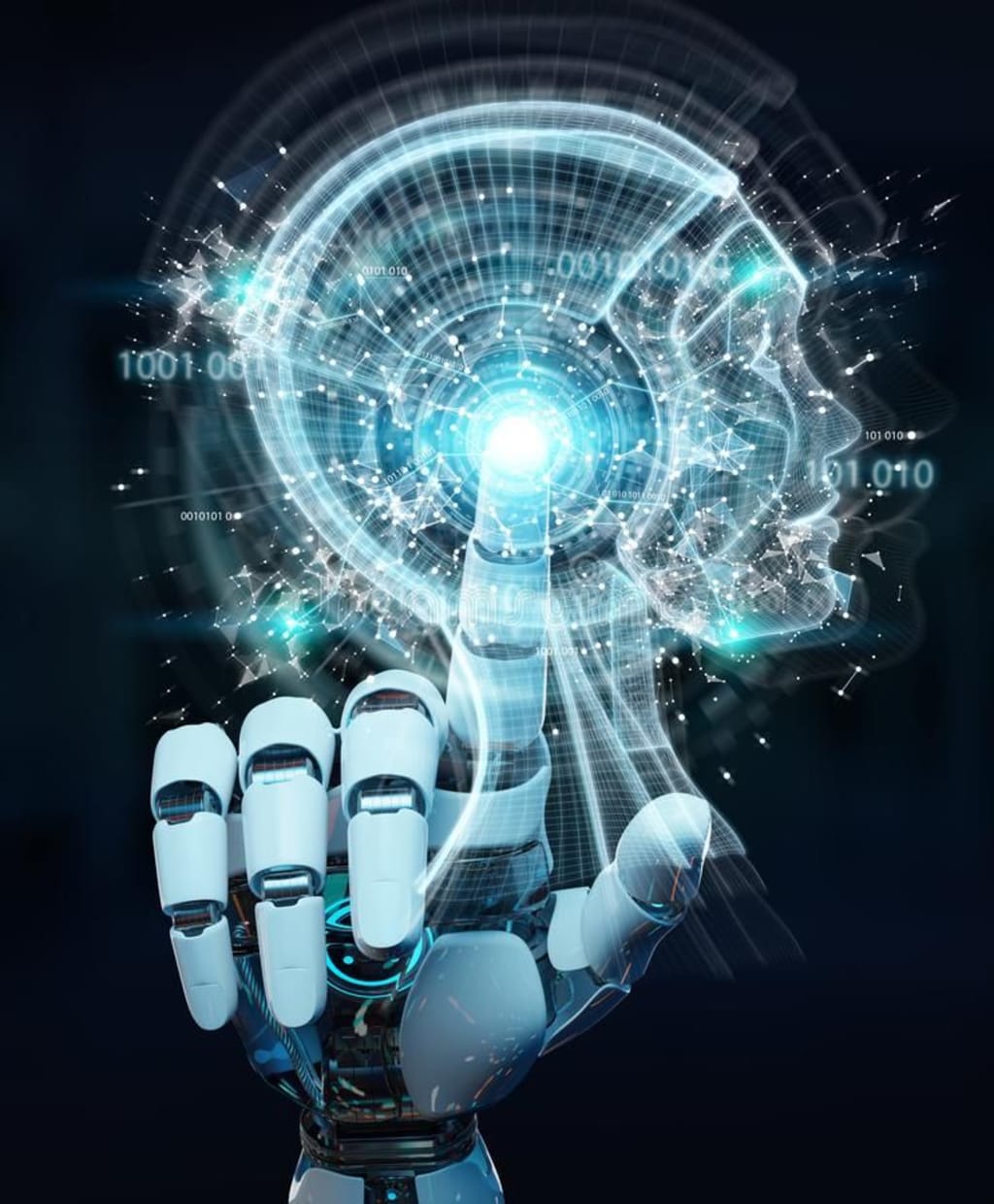Will AI really replace thousands of jobs in the future?
AI's Impact on Jobs

Artificial intelligence (AI) has become a disruptive technology in recent years, revolutionising a number of industries. But worries about its effects on the labour market are mounting. Will artificial intelligence (AI) replace thousands of occupations, making human labour obsolete? This essay seeks to answer this query and offer a thorough knowledge of the possible effects of AI on the nature of labor in the future.
The Workplace and AI
Businesses have been using AI to improve decision-making, streamline processes, and increase efficiency at work, and this integration has been growing significantly. Robotics and other AI-powered technologies have the potential to automate monotonous activities, freeing up human workers to concentrate on more creative and strategic duties.
Impact on Job Market
While AI brings undeniable benefits, concerns arise regarding its impact on the job market. Will AI replace a significant number of jobs? It is important to note that while some jobs may be automated, AI is more likely to transform job roles rather than replace them entirely. Studies suggest that AI will augment and complement human capabilities, leading to job redefinition and the emergence of new opportunities.
Jobs Most at Risk
Certain job categories are more susceptible to automation than others. Repetitive and routine tasks, such as data entry, assembly line work, and customer service, are at higher risk. However, it is essential to recognize that even in these domains, AI is more likely to automate specific tasks within a job rather than the entire job itself.
Jobs Least at Risk
Conversely, jobs that require complex cognitive abilities, emotional intelligence, creativity, and social interactions are less likely to be fully automated. Professions such as healthcare, education, and creative fields rely heavily on human judgment, empathy, and intuition, making them more resistant to AI-driven automation.
The Role of AI in Job Creation
While concerns about job displacement persist, it is important to acknowledge that AI also has the potential to create new jobs. As AI technology advances, the demand for skilled professionals who can develop, implement, and maintain AI systems is expected to grow. Job roles related to AI research, data analysis, and AI ethics will likely see increased demand in the future.
Upskilling and Reskilling
To navigate the changing landscape of work, upskilling and reskilling become crucial for individuals. As certain tasks become automated, acquiring new skills that complement AI technologies becomes essential. Education and training programs should focus on developing human skills that are difficult to replicate by AI, such as creativity, critical thinking, complex problem-solving, and emotional intelligence.
Job Transformation
Rather than job transformation, where AI replaces jobs entirely, a more likely scenario is job augmentation and transformation. AI has the potential to assist human workers, enhancing their productivity and efficiency. For example, in healthcare, AI-powered diagnostic systems can support doctors in making more accurate and timely diagnoses, leading to better patient outcomes.
Ethical Considerations
As AI becomes more prevalent in the workforce, ethical considerations come to the forefront. Issues such as data privacy, algorithmic bias, and the ethical use of AI need to be carefully addressed. Organizations and policymakers must establish frameworks and guidelines to ensure the responsible and ethical deployment of AI technologies, mitigating potential negative impacts on jobs and society as a whole.
AI as a Complementary Tool
Rather than viewing AI as a threat to jobs, it is more beneficial to see it as a complementary tool that can augment human capabilities. AI can handle repetitive and mundane tasks, allowing human workers to focus on higher-value activities that require creativity, critical thinking, and emotional intelligence. This symbiotic relationship between humans and AI can lead to increased productivity and innovation.
AI and Human Collaboration
The future of work lies in the collaboration between humans and AI systems. Instead of replacing jobs, AI can empower workers by providing them with intelligent tools and insights. Human workers can leverage AI technologies to gain a deeper understanding of complex data, make data-driven decisions, and automate tedious tasks. This collaboration can lead to a more efficient and productive work environment.
AI in Specific Industries
AI's impact on the job market varies across different industries. For example, in manufacturing, AI-powered robots can automate repetitive tasks, leading to changes in job roles and skill requirements. In the transportation industry, self-driving vehicles may transform the role of drivers. However, it is important to note that AI also creates new job opportunities in areas such as AI development, cybersecurity, and data analysis.
The Future of Work
The future of work will be shaped by the integration of AI and human intelligence. Jobs will evolve, requiring a combination of technical expertise and human skills. It is crucial for individuals and organizations to adapt to this changing landscape by embracing lifelong learning, fostering a culture of innovation, and cultivating skills that are difficult to automate.
Conclusion
While AI undoubtedly brings advancements and changes to the job market, the notion that it will replace thousands of jobs in the future is an oversimplification. AI is more likely to transform job roles, augment human capabilities, and create new opportunities. The key lies in recognizing the potential of AI as a complementary tool and investing in upskilling and reskilling efforts. By embracing the collaboration between humans and AI, we can shape a future where technology enhances productivity and empowers workers.
About the Creator
Ayan Das Sharma
"Powering Tomorrow's Innovations, Today"
1. Artificial Intelligence.
2.Web development.
3.Mobile app development.
4.Cybersecurity.
5.Data analytics.






Comments
There are no comments for this story
Be the first to respond and start the conversation.